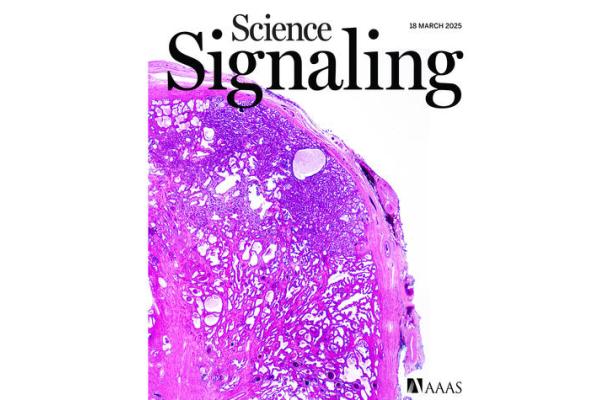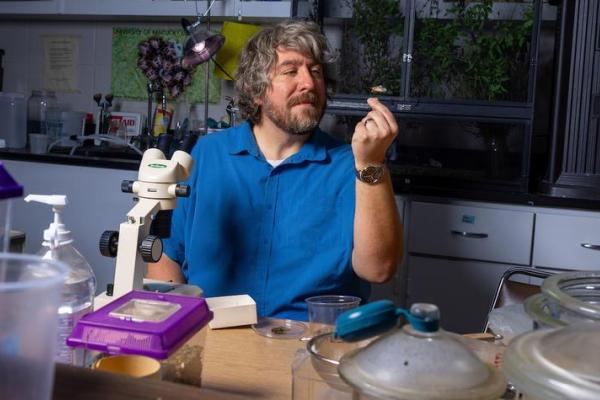Markey researcher awarded $3 million to study new target for melanoma treatment

University of Kentucky Markey Cancer Center researcher Jin-Ming Yang, Ph.D., was recently awarded a $3 million, five-year grant from the National Cancer Institute (NCI) to support research focused on improving the effectiveness of immunotherapy treatment for melanoma.
Melanoma is an aggressive form of skin cancer that is responsible for over 80% of skin cancer-related deaths in the U.S. While the introduction of immunotherapies to treat melanoma has been promising, the treatment is often ineffective.
Yang’s project will focus on a protein called eEF-2K, which helps control how cells make new proteins. eEF-2K could play an important role in how the immune system fights cancer, which would make it a promising target for melanoma immunotherapy treatment.
"Despite recent advances, many patients with melanoma still face limited options,” said Yang, a professor in the UK College of Medicine’s Department of Toxicology and Cancer Biology. “This research could lead to new, more effective treatments for melanoma and other solid tumor cancers.”
Yang and his team will investigate how eEF-2K helps cancer cells evade the immune system as well as the protein’s impact on immune response. Results will shed light on whether targeting eEF-2K holds promise as a new way to treat melanoma, either on its own or combined with existing immunotherapies.
Successful completion of this study would define eEF-2K as an effective immunotherapy treatment target for melanoma and other cancers. Since researchers are already actively pursuing development of therapies that target eEF-2K, Yang says this could provide scientific rationale for advancement of these studies to clinical research.
Research reported in this publication was supported by the National Cancer Institute of the National Institutes of Health under Award Number R01CA282254. The content is solely the responsibility of the authors and does not necessarily represent the official views of the National Institutes of Health.
More from this series Research Priorities - Cancer
Credits
Elizabeth Chapin (Public Relations and Strategic Communications)



